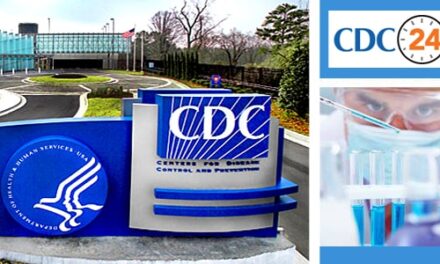
The ultimate guide to facial serums, according to beauty experts

CNN —
Moisturizers, serums, essences, oils, mists: the list of “must-have” beauty products goes on. It can be hard to parse out what you actually need from what’s just a marketing ploy. But even if you don’t want to spend a lot of time or money on an exhaustive skin care routine, adding a serum might be your ticket to clear, bright, even-toned skin, dermatologists say.
“A serum is a skin care product that can deliver a high concentration of specific active ingredients directly to the skin,” says cosmetic chemist and founder of Acaderma, Dr. Shuting Hu. They’re specifically designed to target various skin care concerns like fine lines, loss of hydration and hyperpigmentation, among others,” she says. And unlike moisturizers or creams, “serums are low viscosity, so the active molecules can penetrate the skin on a deeper level compared to a cream or moisturizer,” Hu adds. “The thin, liquid texture of a serum makes it easy for it to penetrate the skin, and the high amount of concentrated actives make a serum more powerful and effective than most moisturizers or other skin care products.” In layperson’s terms, they’re like a booster for your skin.
Most serums are designed to be applied after cleansing but before moisturizer. “I consider serums part of my skin prep routine,” says makeup artist Ashleigh Ciucci. “I mist the skin, which will helps make serums and creams absorb more efficiently. A few drops of your serum will deliver anti-aging, reparative and texture benefits, depending on which you choose.” In case you needed more convincing, celebrity makeup artist Grace Pae seconds the skin-priming benefits of a serum: “For normal to drier skin types, I always use a serum because it really helps to prepare the skin for moisturizer and helps it look more plump and supple,” she says. “I usually use one to two pumps and press it into the skin gently.”

iStock
As with any beauty product, finding the right serum means you need to figure out what you’re targeting first. “Identifying a few key issues like dark spots, dryness or fine lines will help you decide which serum is right for you,” says Hu. “It’s also important to consider what type of skin you have, whether it’s dry, oily or combination. With these two elements in mind, you can then look for a serum that works well with your skin type and also targets those key issues.”
Celebrity dermatologist Harold Lancer, who’s worked with celebrities like Victoria Beckham, Beyoncé and Kim Kardashian, has one warning: “Remember, you should always patch test when using a new product.” This goes for anything you put on your skin or hair, he says.
Ahead, find the best serums for every skin care concern, according to the pros.
“If there’s a single ingredient that’s best known to target the signs of aging, it’s retinol. A derivative of vitamin A, retinol stimulates collagen production and encourages rapid cell turnover,” says Hu. “Retinol serums work in a few different ways: First, by stimulating collagen production, it will help to prevent wrinkles from forming while filling out any existing fine lines or wrinkles,” she says. “A retinol serum will exfoliate dead skin cells to reveal a brighter, smoother skin underneath. It also helps to fade dark spots, sun spots and hyperpigmentation.”
The bad news? Retinol can be super irritating, especially for those with sensitive skin. Lancer recommends starting with an over-the-counter retinol serum with a relatively low percentage of the active ingredient. Start by using a retinol serum at night once per week, and gradually build up over six to eight weeks to daily use.
If retinol isn’t for you, there are alternatives to retinol that can also target fine lines, wrinkles and generally dull skin: “Niacinamide can also work to increase the production of ceramides, which maintains the skin’s protective barrier, so it’s great for anti-aging,” says Hu. Its properties are similar to that of retinol, just without the potential for irritation to occur as with retinol. Lactic or glycolic acids also help to encourage cell turnover by gently exfoliating the skin.
Naturium Retinol Complex Serum ($20; target.com)

Target
Naturium Retinol Complex Serum
A great entry point for new retinol users, this pick is made specifically for sensitive skin.
Paula’s Choice 0.3% Retinol + 2% Bakuchiol Treatment ($54; paulaschoice.com)

Paula’s Choice
Paula’s Choice 0.3% Retinol + 2% Bakuchiol Treatment
Gentle bakuchiol offsets the powerful retinol in this serum from Paula’s Choice.
Acaderma Chrono Warp Restoring Essence ($90; acaderma.com)

Acaderma
Acaderma Chrono Warp Restoring Essence
“This features edelweiss stem extract and an advanced retinol complex to lift and firm the skin while also boosting collagen production and inhibiting the production of advanced glycation end products that lead to wrinkles and dullness,” Hu says.
“Proper exfoliation should be a combination of both physical and chemical exfoliants,” says Lancer, who recommends The Method: Polish from his own line for its ability to accelerate cell turnover manually. “A chemical exfoliant should be used as well, which can be in the form of AHAs, BHAs or enzymes. Start off by exfoliating a couple of times a week, then build tolerance so exfoliation can take place daily.”
Before choosing a serum, there are a few interactions to consider: “Benzoyl peroxide [which is an AHA] should not be mixed with retinols or vitamin C, as it degrades the active ingredients and can cause irritation. Products that contain BHAs should not be used with AHAs, as they are not meant for layering and can cause dryness and irritation.” That means anything with lactic, glycolic or citric acid shouldn’t be mixed with salicylic acid or retinol.
Paula’s Choice Skin Perfecting 2% BHA Liquid Exfoliant ($29.50; paulaschoice.com)

Paula’s Choice
Paula’s Choice Skin Perfecting 2% BHA Liquid Exfoliant
This Skin Perfecting Serum relies on beta hydroxy acids (BHAs) to chemically exfoliate the skin.
The Things We Do Pigment Remedy ($72; thirteenlune.com)

Thirteen Lune
The Things We Do Pigment Remedy
This serum is a favorite among beauty editors and influencers alike for its ability to blur imperfections quickly.
iS Clinical Active Serum ($138; dermstore.com)

Dermstore
iS Clinical Active Serum
iS Clinical is an under-the-radar powerhouse brand that beauty editors swear by. This serum can gently slough away hyperpigmentation without stripping the skin.
Derms universally agree that vitamin C, a naturally occurring, gentle antioxidant, is one of the most effective ingredients for evening skin tone. “Vitamin C specifically helps to protect the skin from the long-lasting effects of UV rays, reducing the appearance of sunspots, refining skin texture and lessening the appearance of existing wrinkles,” says Lancer. Look for words like “brightening” and “even toned” on the packaging, and L-asorbic acid on the label.
“Due to its high level of acidic properties, vitamin C will help promote collagen and elastin production to reduce the appearance of fine lines and wrinkles,” Lancer says. “Vitamin C is also very popular in hyperpigmentation serums, as it inhibits the skin’s melanin production, which causes dark spots. It’s brightening and hydrating so it’s overall a very versatile product.”
Again, they both warn not to mix any vitamin C serum with retinol, so it’s best used in the morning. Because vitamin C breaks down when exposed to sunlight, it’s important to keep your serum in a dark, dry place — and to layer SPF on top.
Ole Henriksen Truth Serum ($50; sephora.com)

Ole Henriksen
Ole Henriksen Truth Serum
Formulated with vitamin C and collagen, this serum is formulated to both brighten and hydrate, so it’s ideal for dry skin too.
SkinCeuticals C E Ferulic ($166; dermstore.com)

Dermstore
SkinCeuticals C E Ferulic
The gold standard in terms of cult favorites, this Underscored editor-approved serum from SkinCeuticals works to diminish dark spots and dullness over time.
Lancer Skincare Advanced C Radiance Treatment ($90; lancerskincare.com)

Lancer Skincare
Lancer Skincare Advanced C Radiance Treatment
“Formulated with 10% vitamin C and retinol, [the] Advanced C Radiance Treatment helps skin appear more radiant, smooth and even toned,” says Lancer.
Celebrity and editorial makeup artist Katie Jane Hughes is best known for creating looks with dewy, healthy-looking skin. Her secret? “Look for the words glow or dewy, radiant or hydrating on the bottle!” Oftentimes, that means it’s packed with niacinamide, or hyaluronic acid.
You may have heard that hyaluronic acid is one of those sneaky-good molecules that holds up to 1,000 times its weight in water, which means it’s great for dry skin, and Hu can confirm: “It’s one of the key molecules involved in retaining skin moisture,” she says. “As your skin loses moisture and the natural hyaluronic acid levels decrease, using a hyaluronic serum will restore this loss of moisture and also act as a magnet to attract and absorb moisture from your external environment to keep the skin plump and hydrated. After using a hyaluronic serum, follow it up with your moisturizer to seal it all in.” Lancer also notes that hyaluronic acid mixes well with most other ingredients, so it’s great to use with retinol.
Niacinamide, a form of vitamin B3, is also great for dry skin, Lancer says. “It helps build protein in the skin to lock in moisture, prevent environmental damage, minimize redness and blotchiness, treat hyperpigmentation and even treat acne.” And because fine lines and wrinkles are more likely to form when the skin is dry, hydrated skin will always look more supple and plump.
It Cosmetics Bye Bye Lines Hyaluronic Acid Serum ($29.99; ulta.com)

Ulta
It Cosmetics Bye Bye Lines Hyaluronic Acid Serum
This new serum from It Cosmetics goes on like a dream and sinks in just as fast.
Glossier Super Bounce ($28; glossier.com)

Glossier
Glossier Super Bounce
Hyaluronic acid and vitamin B5 round out this hydrating serum from Glossier, another editor favorite.
La Roche-Posay Hyalu B5 Face Serum With Hyaluronic Acid ($36.99; laroche-posay.us)

Target
La Roche-Posay Hyalu B5 Face Serum With Hyaluronic Acid
A drugstore favorite, La Roche-Posay’s hyaluronic acid serum also boasts a dose of vitamin B5, which can help the skin repair itself.
While spot treatments are usually the best way to topically target acne, the right serum can help maintain clear skin too. “I like ZitSticka’s Megashade Sunscreen Serum SPF50 because it’s noncomedogenic, super lightweight, and though it targets acne-prone skin, it’s still supple and silky enough for dry skin,” says Ciucci.
AHAs like lactic or glycolic acid can also increase cell turnover and reduce pesky breakouts.
ZitSticka Megashade Breakout-Proof SPF Serum ($40; ulta.com)

ZitSticka
ZitSticka Megashade Breakout-Proof SPF Serum
ZitSticka is best known for its super-effective pimple patches, but Ciucci swears by this serum for its blurring effect too.
Sunday Riley Good Genes All-in-One Lactic Acid Treatment ($122; sephora.com)

Sunday Riley
Sunday Riley Good Genes All-in-One Lactic Acid Treatment
Lactic acid is technically an exfoliating BHA, but it can help the skin purge any impending breakouts faster than it can on its own too. This one’s beloved by derms and editors alike.
Peace Out Salicylic Acid Treatment Serum ($34; peaceoutskincare.com)

Sephora
Peace Out Salicylic Acid Treatment Serum
If you find yourself with all-over breakouts, this salicylic acid serum is a fantastic way to keep them at bay. Plus, unlike most spot treatments, it won’t pill under makeup.
“The best serums for sensitive skin provide active serums that soothe and calm inflammation, alleviate dryness and redness, and create a barrier against external irritations,” says Lancer. “Active ingredients that work great for sensitive skin include hyaluronic acid, bakuchiol, as well as green tea extract.”
Hu adds that those with sensitive skin should “avoid serums that contain any alcohol, fragrance or essential oils because these ingredients typically cause irritation for those with sensitive skin,” she says, adding that retinol might not be suitable for sensitive skin because it can be too aggressive. “Plant-based ingredients such as bakuchiol [are great] if you want to mimic the effects of retinol.”
Acure Radically Rejuvenating Dual Phase Bakuchiol Serum ($19.99; ulta.com)

Acure
Acure Radically Rejuvenating Dual Phase Bakuchiol Serum
As Hu insinuated, this serum with hydrating bakuchiol (an alternative to retinol) is gentle enough for even the most sensitive skin.
Herbivore Bakuchiol Retinol Alternative Smoothing Serum ($54; herbivorebotanicals.com)

Herbivore
Herbivore Bakuchiol Retinol Alternative Smoothing Serum
Retinol is usually a no-go for sensitive skin, but this vitamin A alternative is easy on even the most reactive skin, according to the derms we spoke to.
The Ordinary Niacinamide 10% + Zinc 1%, ($5.90; sephora.com)

The Ordinary
The Ordinary Niacinamide 10% + Zinc 1%
Niacinamide is known for lending skin a dewy glow — and according to the derms it’s perfectly gentle for sensitive skin types.
Source: http://rss.cnn.com/~r/rss/cnn_topstories/~3/a1XPzgkgpaA/index.html

















